If you are considering a career offshore, then you’ll be delighted to know that there are an absolutely enormous variety of careers available. Working Offshore often conjures images of battling against stormy seas and fierce winds, but this doesn’t always have to be the case. There are Offshore jobs in all kinds of fields, including administration and research. In this blog, we’ll give you some insight into the type of Offshore jobs available, and hopefully help you to find the right match!
The Most Popular Offshore Jobs of 2019
Offshore Administrator
Administrators play a vital role in work on an offshore rig. They are prevalent in both technical and non-technical areas, and perform a lot of the ground work which keeps matters on a rig ticking over. There are a huge variety of administration tasks which need to be performed on an offshore facility, including:
- Creating and maintaining data spreadsheets and reports.
- Cataloguing expenses, invoices and purchase orders.
- Handling the facility’s phoneline.
- Arranging meetings and ensuring that the right measures are in place for the meet to run successfully and punctually.
- Maintaining a record of staff holiday/sick leave.
- Ensuring technical training and safety manuals are up to date and available for staff.
In essence, administrators provide essential support to managers onboard offshore platforms. Managing information, even if it might seem benign, is incredibly important to the productive and efficient running of an offshore facility.
Offshore Chemical Process Engineer
Chemical process engineers play an important role in constructing, and improving, offshore facilities. Since working with oil and gas requires a great deal of chemical knowledge and expertise,
it’s vital for companies to have experts at hand. Process engineers don’t just work on the rigs themselves, but also work at production facilities, and on shore sites, where the oil and gas is stored and processed. As a chemical process engineer, your tasks will include:
- Carrying out routine studies and checks of the production process, to establish where improvements can be made.
- Playing an active role in design and engineering work.
- Conducting risk assessments.
- Providing technical expertise and knowledge.
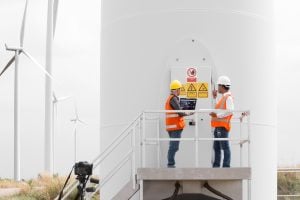
Offshore Crane Operator
While it might not seem the most glamourous of positions, crane operators play a very important role in both offshore jobs and onshore operations. There’s an enormous amount of equipment to be moved, all in an efficient, cost-effective and safe manner, and this is the role of a crane operator. As a crane operator, you will usually work offshore, but there are also positions available in shipyards and other naval bases. As a crane operator, your duties will include:
- Operating cranes, in a safe and competent manner, in accordance with the instructions of platform management.
- Ensuring that crane work is done in a way that adheres to safety protocols, and manufacturing instructions.
- Carrying out routine checks on crane related equipment, to ensure there are no faults or safety hazards.
Offshore Driller
Drillers are tasked with supervising the drilling team, and their main role is to ensure that the rate of drilling is consistent and correct. Drillers ensure that all offshore jobs/operations on the drill floor are completed using the correct safety operations, and that maintenance is performed on crucial equipment. The driller is responsible for ensuring that the well is drilled to the correct parameters, as decided by the operator. As a driller, your tasks will include:
- Taking leadership of drill floor operations.
- Controlling the machinery on the drill floor.
- Keeping and maintaining accurate records of the day’s drilling.
- Ensuring every person on the team follows the correct health and safety protocols.
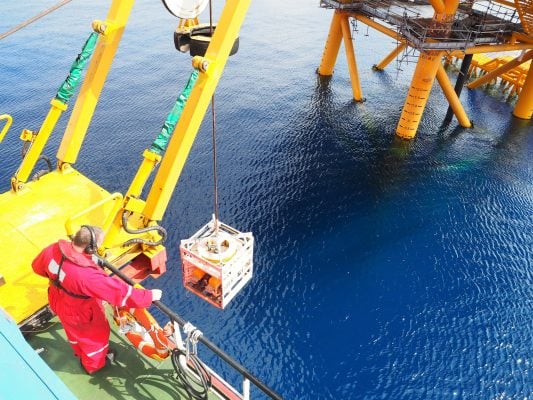
Offshore Health and Safety Officer
Given the importance of health and safety in offshore jobs, it’s no surprise that many offshore platforms will hire designated health and safety officers. These persons essentially take an
advisory role, providing guidance to the company on how accidents can be prevented whilst offshore. As a health and safety officer, your duties will include:
- Working with company management, to develop health and safety policies.
- Conducting inspections of the rig, performing risk assessments and establishing where improvements can be made.
- Providing advice and guidance on health and safety.
- Helping staff with critical areas such as protective clothing or safety drills.
- Taking part in investigations, in the event of an accident or incident.
Offshore Helicopter Pilot
Helicopter pilots are an important part of offshore life, transporting employees from land to sea. Usually there are two pilots per helicopter – captain and co-pilot. As an offshore helicopter pilot, your tasks will include:
- Conducting flight plans, to ensure safe passage.
- Checking weather conditions and airspace rules and regulations prior to flying.
- Ensuring all helicopter equipment is in full working order/conducting safety checks of the helicopter prior to take-off.
- Using skills and expertise to navigate the helicopter from A to B.
- Filling in post-flight reports, following each journey.
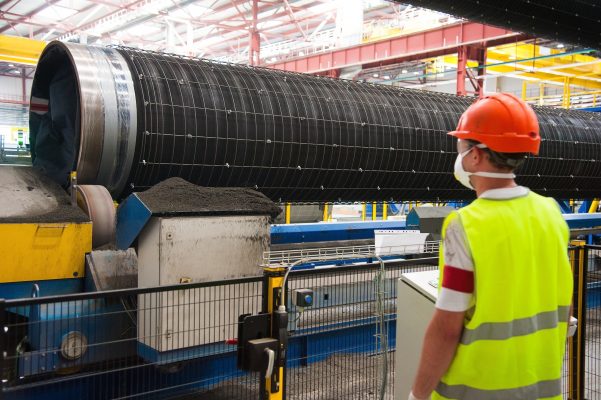
Offshore Reservoir Engineer
Reservoir engineers work with technical divisions to extract oil and gas. In order to do this, they turn geological information into models, which aim to predict the way in which oil, gas and water flow through rocks. As such, there’s a lot of prediction, simulation and analysis in this field. As a reservoir engineer, your typical offshore jobs will include:
- Providing accurate forecasts of the way in which oil and gas flow.
- Ensuring extraction plans are economical and viable.
- Helping to locate the right places for wells.
- Estimating the scale of oil and gas reserves.
- Analysing technical data.
Offshore Welder
A welder is someone who cuts and then joins metals and other materials together, using special techniques. This is extremely important on an offshore rig, and welders are needed for an enormous variety of offshore jobs – even in constructing the rig itself. As a welder, your offshore jobs will include:
- Selecting the correct materials for various tasks.
- Following complex engineering diagrams, to product the best possible results.
- Deciding on the right welding methods for specific tasks.
- Inspecting and assessing the quality of cutting and welding work.
- Adhering to health and safety standards.
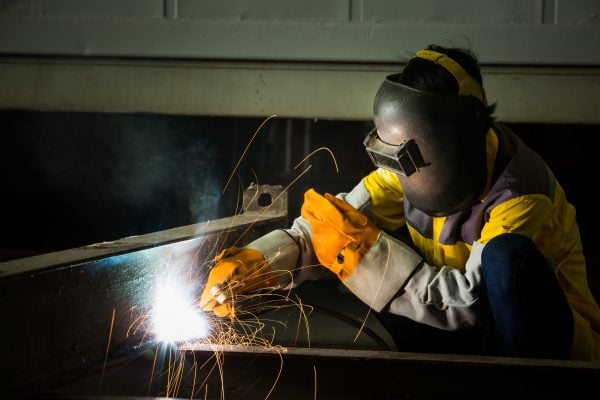
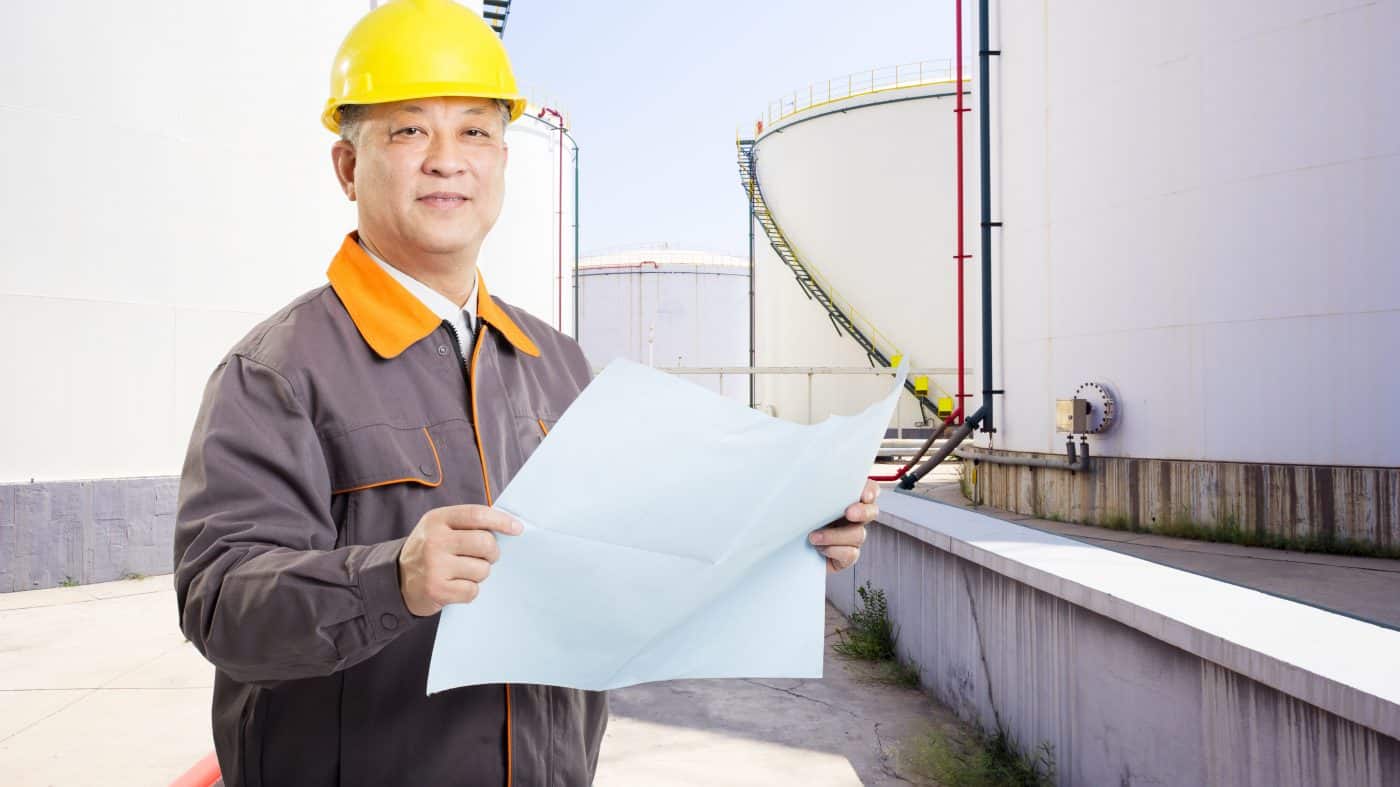
hello i would be looking at getting on with you guys. i have experiance at workingh at heights, working 12 hour days in a fisical job, and well in a team to list a few would love to hear back from you 07855030563
Hi Callum,
Unfortunately, we aren’t an Offshore Company. However, you should take a look at Siemens Apprenticeships and Maersk to see if they have any roles available. Good luck with your application!
Kind regards,
The How2Become Team.